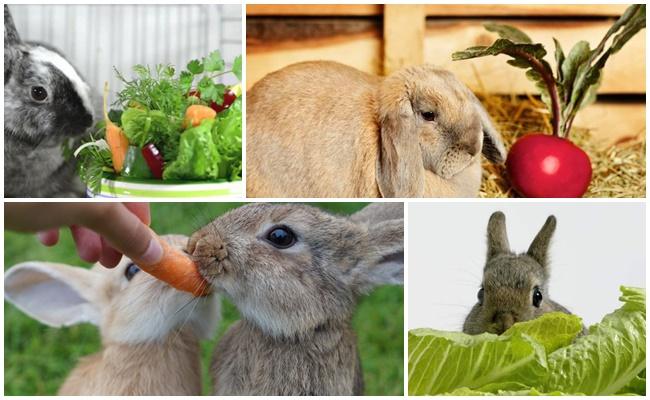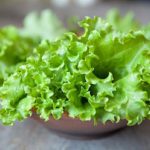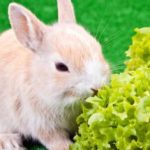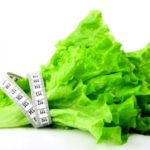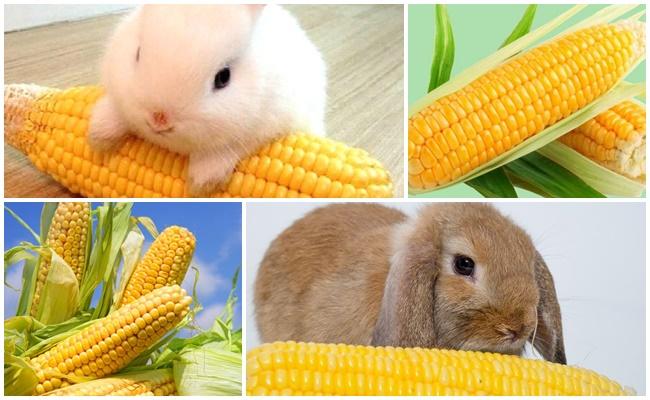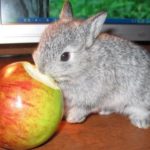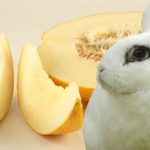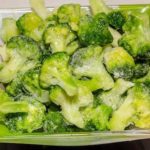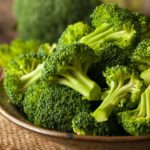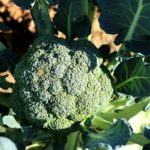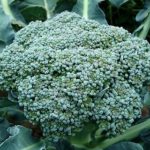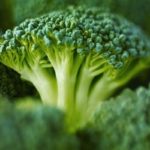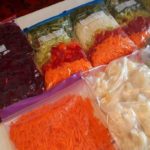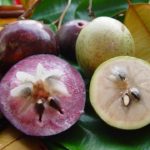A cute, fluffy animal - an ornamental rabbit - has long become a desired pet in the family. It is believed that keeping them is simple: give them cabbage, carrots and let them gnaw on them. But few people know that cabbage is undesirable in the diet of these fluffies. As do some vegetables and fruits. Let’s figure out which vegetables can be harmful, and what can be given to rabbits without harm.
What vegetables can you give rabbits?
It is known that the main food of animals is hay, but it needs to be supplemented with fresh vegetables and fruits. Juicy food is a source of vitamins and minerals, an opportunity to pamper your pet with a tasty berry.Vegetables are added to the food gradually and carefully, even those collected at the dacha are not always beneficial for the rabbit.
The delicate organism of animals can react violently with unpleasant moments, for example:
- stool disorder;
- swelling;
- intestinal obstruction;
- accumulation of gases.
After carefully observing the decorative rabbit, it is important to determine which vegetables are preferred. But you should not constantly offer one root vegetable or greens; the eared fish needs to create variety. The following vegetables are essential in the diet:
- green peas;
- cabbage (some types);
- potatoes (tubers only);
- beet;
- lettuce leaves (preferably dark varieties);
- carrots (root and tops);
- zucchini (pumpkin);
- cucumbers;
- radish.
Green peas. The fruits are rich in proteins, lysine, and are easy to digest. Rabbits quickly gain weight, but to prevent gases from bothering the animal, it is better to mix peas with bran and mixed feed.
Cabbage. Rabbits' favorite vegetable, but with a lot of reservations. Of course, so juicy, up to 90% water, a lot of vitamins E and C. Vitamins make the fur silky, pleasing with a healthy shine. Although animals will happily eat any cabbage, experts advise caution when feeding cauliflower, savoy and broccoli leaves. In white cabbage, only the top leaves are used, of which you need a little so as not to provoke bloating.
Potato. Very little is used. Potatoes contain a lot of starch, which stimulates weight gain. Therefore, boiled tubers are given no more than once a week. Excellent nutrition for meat breeds, but for decorative breeds there are restrictions.
Beet. Fodder beet fits perfectly into the diet of long-eared animals. Especially the sugar variety - it is offered boiled and raw.The tops are rich in microelements, but due to their laxative properties they are given in combination with oak and alder branches, which have an astringent effect.
Lettuce leaves. The composition contains oxalic acid, which causes kidney failure. But the salad also contains quite a lot of vitamins and beneficial microelements. Choose dark lettuce varieties due to their low calcium content.
Carrot. A storehouse of carotene. Only small root vegetables are used for food in raw form, whole or in pieces. To ensure regular consumption, alternate with dried carrot greens.
Zucchini, pumpkin. Only fresh pieces increase the digestibility of hay. Zucchini spoils quickly and can cause diarrhea in the animal. Pumpkin improves digestion, which immediately affects the quality of the coat. The seeds are suitable for preventing worms. You can make pumpkin puree for kids.
cucumbers. A low-calorie vegetable that is indispensable for summer nutrition, added grated or chopped to other foods. Useful for rabbits because it promotes lactation.
Radish. Contains folic acid and a lot of useful substances. During the season they give without restrictions. It is better to mix the tops with other greens.
Corn (raw milk, boiled) will also be useful for the rabbit. And do not forget about a sense of proportion. Another vegetable that can become a favorite delicacy is Jerusalem artichoke, a piggy bank of all sorts of useful things. Having tasted it raw, long-eared animals often refuse other food.
Table of vitamins contained in vegetables recommended for food:
| Vitamins | ||
| Vitamin A | Vitamin C | Vitamin B |
| carrots and tops, lettuce, broccoli, cauliflower, parsley | rutabaga, carrot tops, Brussels sprouts, broccoli, radish tops, parsnip root, Jerusalem artichoke | broccoli, Brussels sprouts, cauliflower, carrot tops, radish tops |
Fruits you can give
Rabbits eat fruit with great pleasure; it is difficult to keep track of it so as not to overfeed your pet. Fruits and berries are not the main food, they are a supplement that stimulates digestion and helps cleanse the intestines of hair.
Pieces of fruit serve as a reward for training. How to win over your pet? These are goodies from:
- apples, pears;
- kiwi, banana;
- melon, watermelon;
- strawberries, raspberries,
- sea buckthorn;
- currants
Prohibited Products
Although rabbits readily eat all vegetables and fruits, some are not recommended on the menu. For example, there are restrictions on cabbage and beets. Red cabbage is strictly prohibited, and table beets, unlike sugar and fodder beets, can be fatal.
Citrus fruits are not suitable as food for rabbits, with the exception of tangerines, just a slice per week. All stone fruits (apricot, plum, peach) are also out of favor with experts.
The tops of nightshade crops are poisonous to animals. Therefore, do not try to add a little greenery from the stems of tomatoes, potatoes, eggplants. Raw potatoes won't do any good either. Pets' diet should not contain cuttings and leaves of rhubarb and beans.
How to feed?
Naturally, only clean, dry vegetables at room temperature are used as food. It is better to cut the products into small pieces. Do not give two different products at the same time; constantly check your pet’s stool for any abnormalities.
Alternate berries with vegetables. Try to exclude zucchini and melon at one time, choose the right combinations.Of course, do not offer products that are overripe, fermented, or with rotten spots. Do not feed fruit to pregnant females due to possible digestive problems.
It’s not difficult to create a menu rich in useful elements. It is important to follow the recommendations, do not overfeed decorative rabbits, feed them a variety of vegetables and fresh fruits.

